What will King Charles mean for Anglo-Irish relations?
- Published
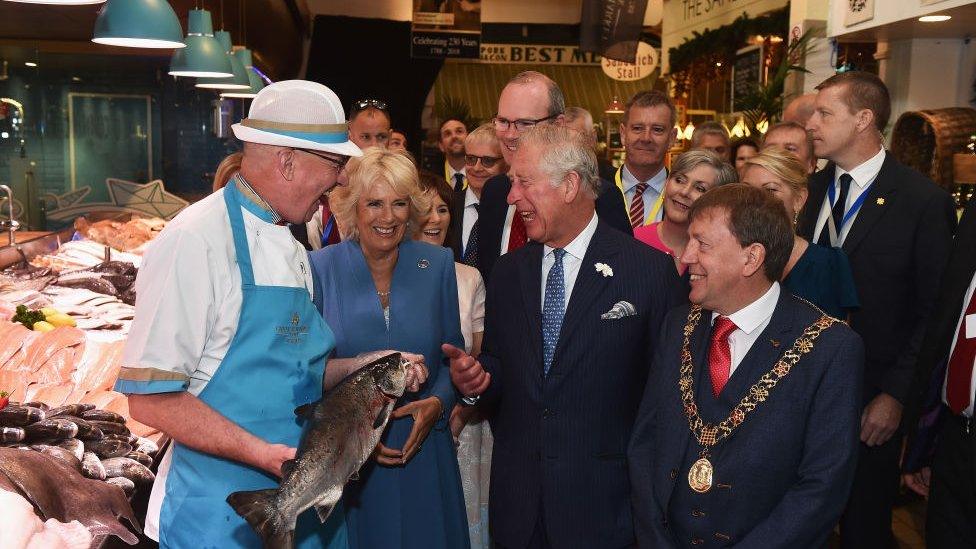
The then Prince Charles meets fishmonger Pat O'Connell at the English Market in Cork in 2018
As King Charles III prepares to take to the throne he also takes on another legacy left over by his mother.
Queen Elizabeth II's 2011 trip to the Republic of Ireland is often seen as a turning point in Anglo-Irish relations.
Will her son continue those steps in reconciliation and what has his relationship been with the Republic of Ireland?
Marie Coleman, professor of 20th Century history at Queen's University Belfast, said that rather than building on his mother's legacy he is "continuing his own legacy of building those good relations".
"The Queen's visit didn't happen in isolation. The groundwork had been laid by the man who is now King Charles," she told BBC News NI.
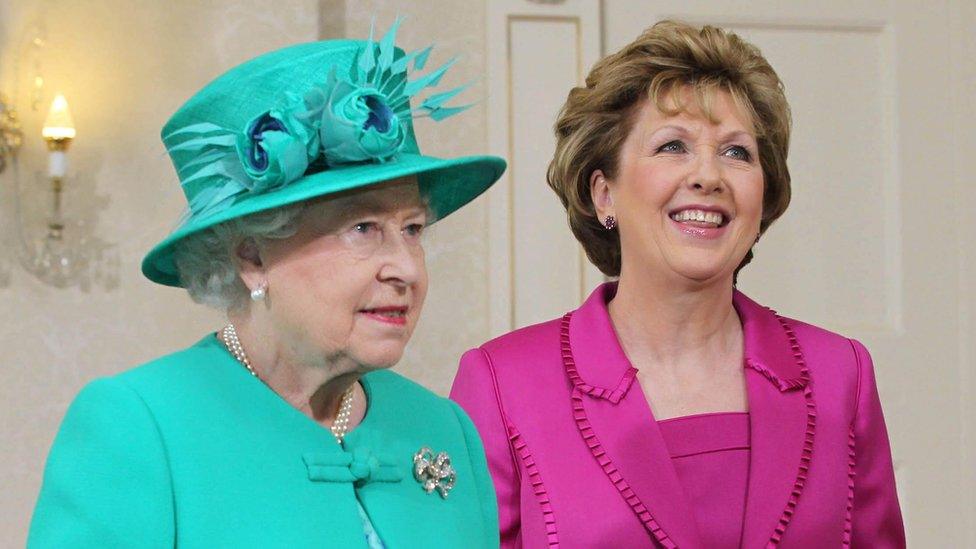
Queen Elizabeth II and President Mary McAleese at Áras an Uachtaráin in Phoenix Park, Dublin 2011
Before the Queen's visit to the Republic of Ireland in 2011, King George V's visit in 1911 was the last by a British monarch.
During that century-long gap there were seismic events that strained an already complicated relationship - Irish independence, partition and, in the latter part of the 20th Century, the Troubles.
Prof Coleman said "the ice between the Irish and the British royals" had been broken by Charles himself when he visited the Republic of Ireland in 1995.
It was the first official visit by a British Royal Family member since Irish independence.
"I'm not convinced that enough credit is given to him for that particular visit," said Prof Coleman.
In many ways King Charles III has a had a closer personal relationship with Ireland than his mother did.
As Prince Charles he has come on private visits as a personal friend of the Duke of Devonshire of Lismore Castle in County Waterford.
He was also co-patron with Irish President Michael D Higgins of the Institute of Irish Studies at the University of Liverpool.
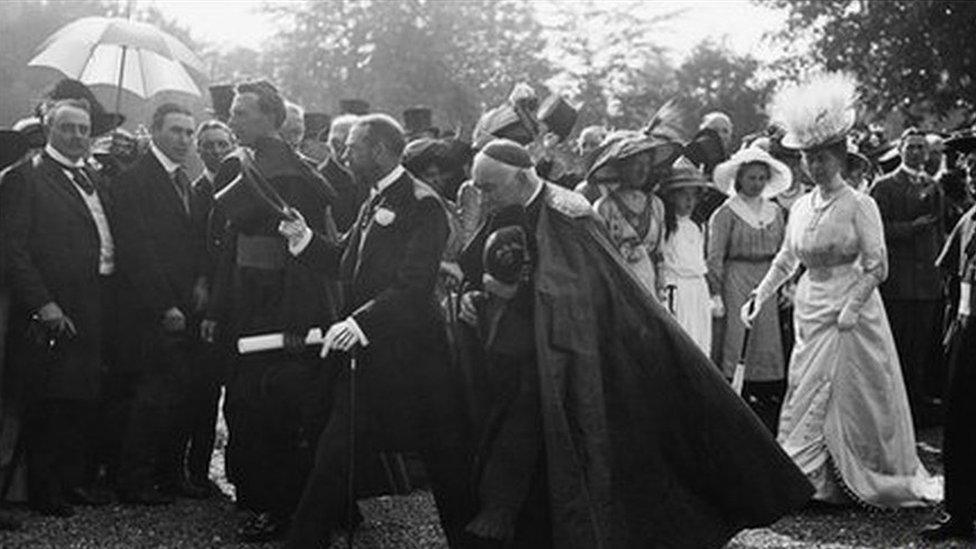
There have been huge changes in Ireland since Charles' great-grandfather King George V visited Maynooth, County Kildare
"He has one of the closest relationships with Ireland, certainly in the last decade, than any monarch I can think of in recent centuries," said Prof Coleman.
Since his 2015 Mullaghmore visit he has been a regular visitor.
As soon as Covid restrictions were lifted he was back visiting in 2022 - with a trip to Tipperary.
"I would not be surprised if the Republic of Ireland was high on his agenda for some sort of significant visit early in his reign," added Prof Coleman.
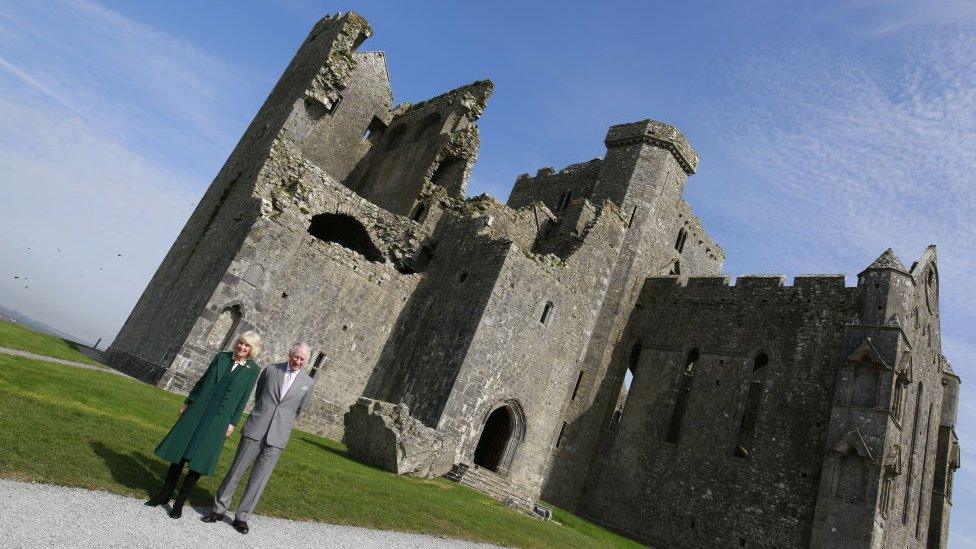
The royals paid a visit to the Rock of Cashel in 2022
Lord Mountbatten
As Prince Charles he made a meaningful trip in 2015, visiting Mullaghmore in County Sligo where his great-uncle was murdered in 1979.
The IRA detonated a bomb on a fishing boat at Mullaghmore, killing Lord Mountbatten, his 14-year-old grandson, Nicholas Knatchbull, and 15-year-old Paul Maxwell.
The Dowager Lady Brabourne died the day after the attack.
"We know that he (Mountbatten) was a formative influence on the prince in his in his early years, so that must have been quite a significant emotional blow to him," said Prof Coleman.
The visit was a significant milestone - the then prince was the first senior member of the Royal Family to visit the scene of the attack.
During that visit he also met Gerry Adams, then president of Sinn Féin.
Speaking at the time, he said: "At the time I could not imagine how we could come to terms with the anguish of such a deep loss, since for me Lord Mountbatten represented the grandfather I never had.
He said the island of Ireland had "more than its fair share of turbulence and troubles" and "those directly affected don't easily forget the pain".
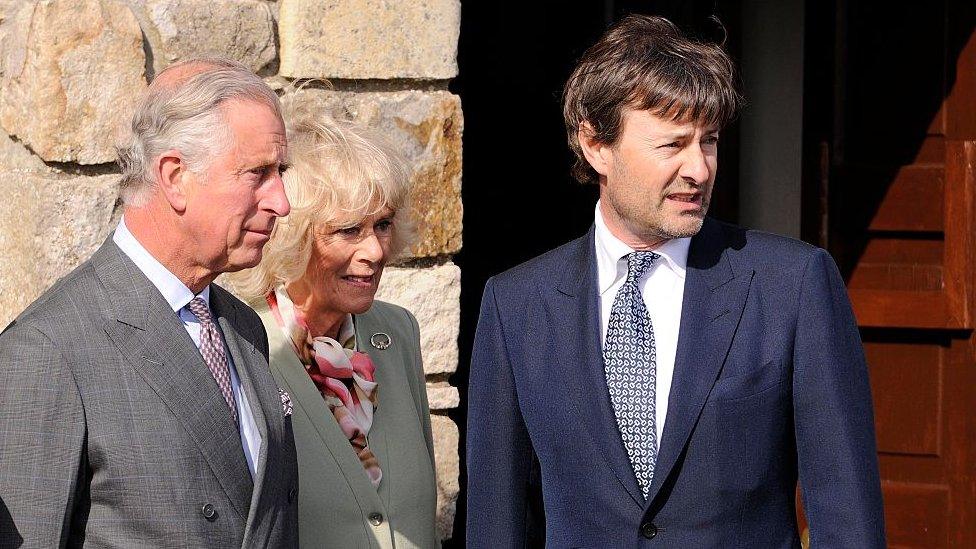
Then Prince Charles and his wife Camilla with Timothy Knatchbull whose twin brother died in the bomb which killed Lord Mountbatten
"So I suppose in some ways, maybe that trip brought him some closure," said Prof Coleman.
"But it is representative of the way in which the Troubles affected not just people on the island of Ireland or people from Britain who are affected, but it it affected the Royal Family and the King himself in a very personal way," she added.
"It seemed as if the foundations of all we held dear in life had been torn apart irreparably" - Prince Charles
The coronation
The invite and acceptance list for the Coronation shows signs of how far Anglo-Irish relations have come.
Prof Coleman said the attendance of the President of Ireland is significant.
"The Irish Free State when it was still a dominion refused to go in 1937. The Republic of Ireland was not represented in 1953 so it's quite an important departure for the Republic of Ireland also."
Even more significant is the presence of Sinn Féin vice-president Michelle O'Neill - who has accepted an invitation to attend the coronation.
"It's even an advance on Sinn Féin's position last September, at the time of the death of the Queen, where they drew a distinction between attending events which marked the passing of the Queen, and not attending events which mark the accession of the new King," said Prof Coleman.
"So it looks like their position has even developed from that," she added.
Brexit
However, the academic said that much of the progress made in Anglo-Irish relations has been affected by Brexit.
Brexit - the UK's departure from the EU - saw it leave a union once shared with Ireland.
It also raised questions of sovereignty, identity and borders.
Has the drawn-out departure and protracted negotiations over the Irish border and trade put extra strain on relations between the two governments?
Prof Coleman said the process had "damaged those good relations which the Queen had done so much to forge particularly during that visit in 2011".


- Published9 September 2022
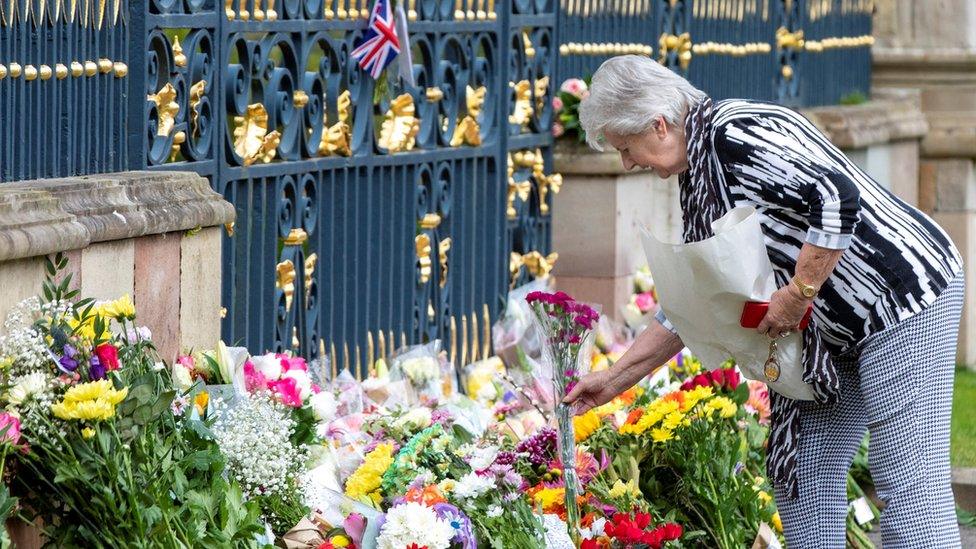
- Published20 May 2015
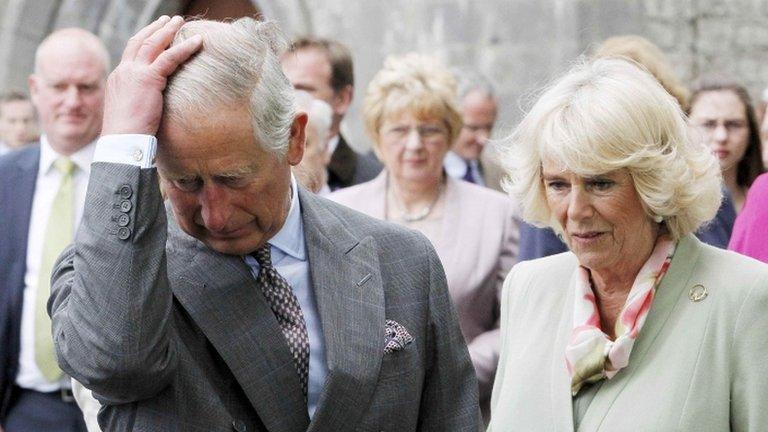
- Published3 March 2020
